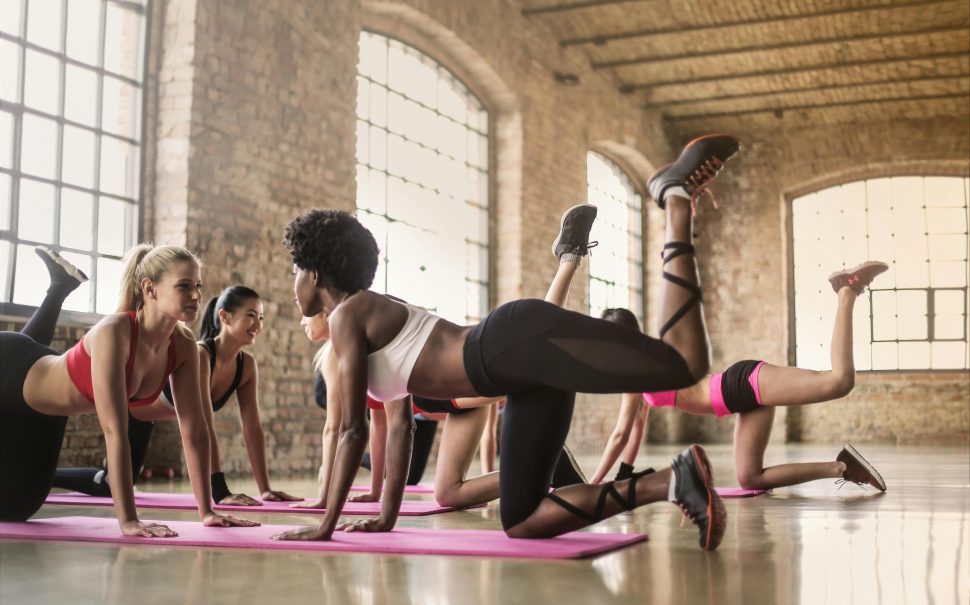Cycle syncing workout programmes are popping up in London, but do they work?
Fitness entrepreneur Evgenia Koroleva launched The Female Curve in 2021, an online platform that coaches women about how to adapt their training to the different phases of the menstrual cycle.
Already the owner of the London gym ONE LDN, Koroleva had become interested in women’s health after going through an egg freezing round.
She said: “I was really blown away by how little I knew about my body as a health and fitness professional.”
Menstruation was becoming a talking point in elite sport, with the US Women’s Football team having famously followed cutting edge cycle monitoring strategies in the runup to winning the 2019 World Cup.
But the role of the menstrual cycle in everyday fitness regimes was, Koroleva said, not yet widely discussed.
She said: “I was like ‘literally no one’s talking about it’.
“But your menstrual cycle basically governs your whole body so making sure that you try to work with its rhythm instead of fighting against it will lead you to not only feeling better but achieving amazing results.”
The Female Curve offers £35 programmes containing information about fitness, nutrition and sleep according to the different phases of the cycle, including managing perimenopausal and PMS (premenstrual syndrome) symptoms.
The first thing the programmes teach, Koroleva said, is how to track one’s cycle, so that members can understand how their feelings, both physical and mental, may be related to hormones.
This is a tool that Dr Hana Patel, an NHS GP and medico-legal witness, also recommends to people coming into her practice.
She said: “If they’re coming in with funny period symptoms or aren’t really sure about what their mood is like and whether it’s related to periods, I get them to do a menstrual diary and chart it for a couple of months just to see how they’re feeling on certain days.”
Once members know how to track, The Female Curve’s programmes then suggest particular workouts or exercises depending on what stage of the menstrual cycle the user is in, which are demonstrated by prerecorded videos.
This might include, for example, high-intensity and strength training during the first phase of the cycle when the female body functions more similarly to a man’s — including, contrary to popular myth, during the bleed itself, when exercise can also help with period pains — and gentler exercise like yoga during the second phase of the cycle when the body is preparing for pregnancy, Koroleva said.
While The Female Curve is an online platform, it is part of a wider trend of cycle syncing programmes offered by fitness studios and personal trainers supposedly educated in women’s health.
Dr Frankie Jackson-Spence, a medical doctor who has teamed up with brands like Pure Gym to educate women about fitness and menstruation, agrees that having an awareness about one’s cycle can be an useful tool in the gym.
She said: “The follicular phase is an oestrogen dominant phase, which is an anabolic hormone.
“Anabolic hormones help us build muscle and store energy so in terms of your training, this may mean that in the follicular phase you feel more energised and stronger.
“There was a study that showed it had a positive effect on type two muscle fibres which is the types of muscle fibres that are used in explosive high intensity exercises — so things like plyometric work, box jumps and HIIT classes.
“In the second half of the cycle, the luteal phase, progesterone becomes the more dominant hormone which is a catabolic hormone, so it shifts your metabolism toward energy breakdown — things like tapping into your fat stores, your carbohydrate stores and your muscles and liver stored as glycogen, but even muscle stores.
“So even though you may be training, it might feel like more effort and progesterone can also impact our ability to recover so you might find that you feel more sore or more tired the next day and don’t recover as quickly.”
However, Jackson-Spence cautioned against stretching the relatively small amount of research in this area too far, saying “it’s not hard-and-fast, prescriptive science”.
She believes the value of cycle syncing is in emboldening women to give themselves a break when they don’t feel their best, but that it shouldn’t necessarily be used to overhaul one’s entire fitness routine.
For Koroleva, who agrees that every cycle is different and says she directs anyone having particular issues to the platform’s more expensive one-to-one coaching options, women should feel empowered by their periods, not constrained by them.
She added: “We’re always like ‘periods are so annoying and so painful’ but actually hormones are these amazing messengers and a healthy period is a sign of your overall health.
“We think about it as such a negative thing but we should reframe it and think ‘I’ve got my period. Things are working well’.”





